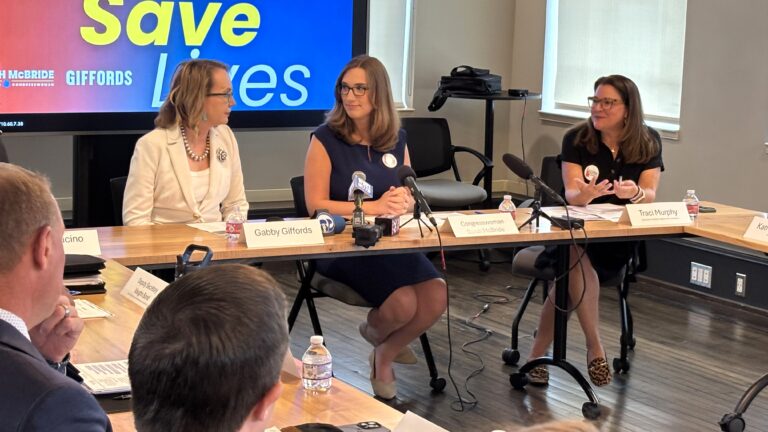Delaware officials gathered for a roundtable discussion on gun violence, highlighting both progress and persistent disparities in gun possession and fatalities. Hosted by Congresswoman Sarah McBride and former Congresswoman Gabby Giffords, the event aimed to address the ongoing challenges in the state, even as data indicates a decrease in gun-related incidents.
During the discussion, which took place on January 23, 2024, Giffords, a mass shooting survivor, emphasized the need for robust gun safety policies. “In Congress, I’ve tried to be a voice for policies that save lives at a time when we’re seeing cuts to funding for effective programs,” she stated.
According to a news release from Attorney General Kathy Jennings, gun violence in Delaware has dropped by 20% since 2020, with homicides in Wilmington reaching a five-year low. Notably, shootings in Dover decreased by 23% during the same period. Participants at the roundtable pointed to these figures as signs of successful collaboration among law enforcement, nonprofits, and mental health professionals.
Despite the positive trends, troubling statistics reveal ongoing issues. The Johns Hopkins Bloomberg School of Public Health reported an 8% increase in Delaware’s overall gun death rate from 2014 to 2023. While the state ranked 13th lowest for gun deaths nationally, young Black males aged 15-34 accounted for a staggering 40% of all gun homicide fatalities, despite making up only 3% of the population.
Wilmington Police Chief Wilfredo Campos highlighted the alarming trend of youth carrying high-caliber weapons. “One of those was a 12-year-old with a handgun,” he noted, underscoring the urgency of addressing youth access to firearms.
The discussion also touched upon the impact of federal funding cuts affecting violence prevention programs. Giffords referenced bipartisan legislation following a tragic school shooting in Texas, which provided crucial resources to address gun violence. Delaware’s loss of federal dollars has raised concerns among advocates about effectively safeguarding the community.
Traci Murphy, representing the Delaware Coalition Against Gun Violence, stressed the importance of community responsibility in preventing youth access to firearms. “When you hear about a 12-year-old accessing a firearm, you know that someone has failed,” she remarked.
Participants pointed out that suicides now outnumber murders in the state, with the Johns Hopkins Center for Gun Violence Solutions reporting 124 gun deaths in 2023, including 76 suicides and 43 homicides. Experts noted a nationwide trend where six out of ten gun deaths are suicides, a situation exacerbated among young Black and Hispanic/Latino communities.
Dr. David Chen, medical director for Empowering Victims of Lived Violence at ChristianaCare, expressed concern about the broader implications of federal cuts on economic stability and mental health. He highlighted the risks individuals face when they feel insecure, which can lead to reckless behavior.
Participants unanimously agreed that securing adequate funding is critical for ongoing efforts to combat gun violence. The potential cuts to the Bureau of Alcohol, Tobacco, Firearms and Explosives have raised alarm among advocates, who fear such reductions would hinder efforts to prevent violent crime.
The discussion concluded with a commitment to continue addressing these pressing issues through collaborative efforts among lawmakers, community organizations, and law enforcement. The establishment of the Office of Gun Violence Prevention by Governor Matt Meyer earlier this year was recognized as a positive step toward reducing gun violence in Delaware.
This event underscores the complexities surrounding gun violence in Delaware, where progress is visible but disparities remain pronounced. As leaders and community members strive to address these challenges, ongoing dialogue and resource allocation will be vital in shaping a safer future for all residents.
